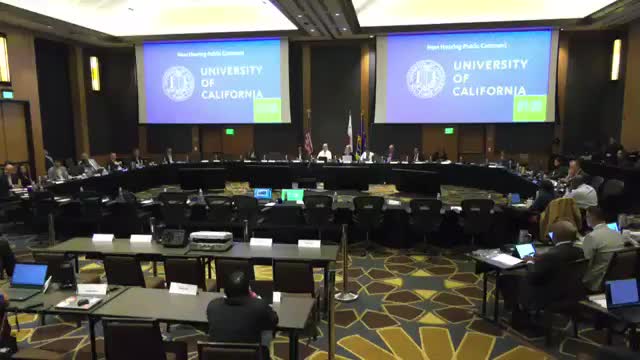Article not found
This article is no longer available. But don't worry—we've gathered other articles that discuss the same topic.

Regents open renewal debate on cohort tuition plan; students urge delay and more study
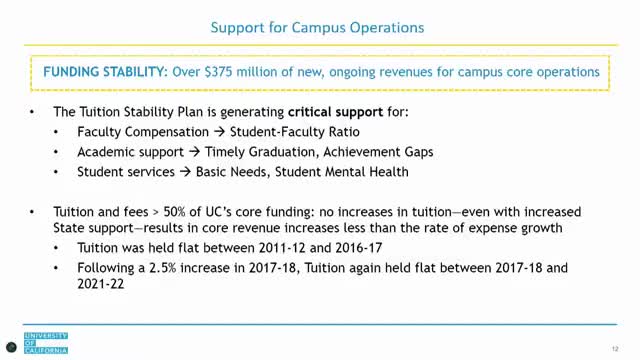
Council of UC Staff Assemblies urges system action on housing, AI use and wellbeing
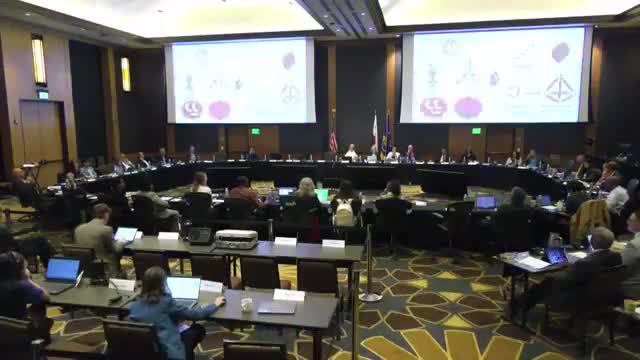
UC GradSlam winners showcase research from drug delivery to HIV detection
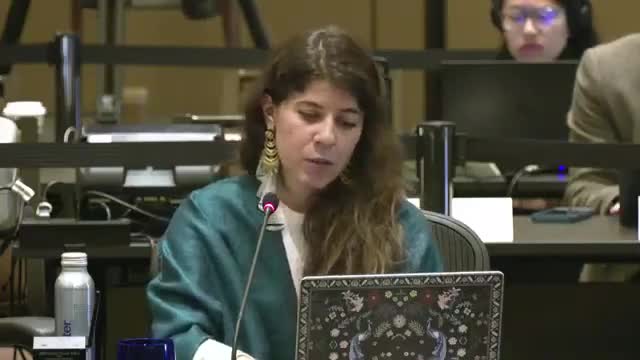
UCSC parenting students tell Regents rent hikes and new lease language exclude families and deepen housing burden
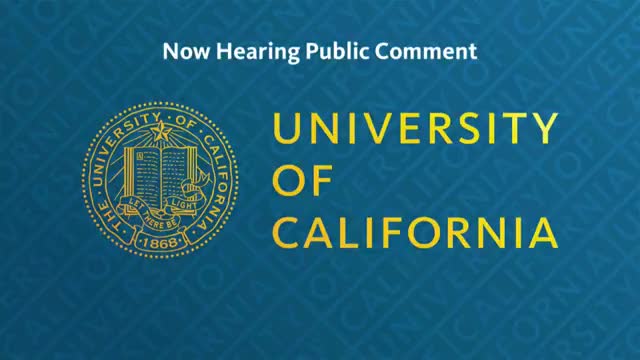
Students and disability advocates say UC mask ban harms disabled students and was used to penalize protesters
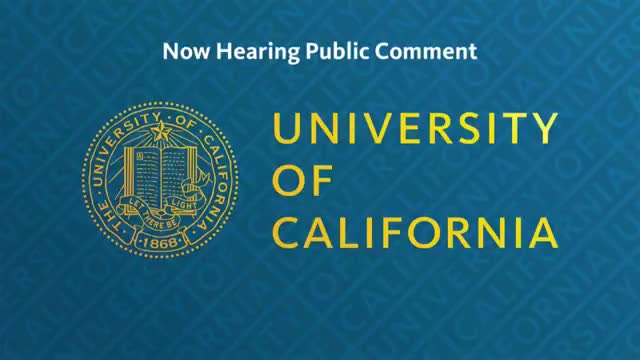
UCSD library and patient-contact centers face layoffs; unions urge leadership to reverse cuts
